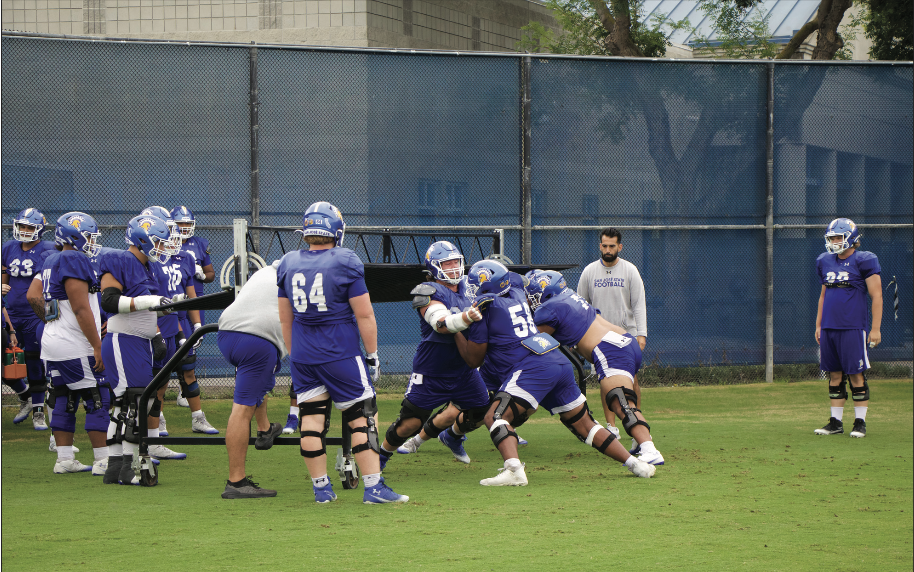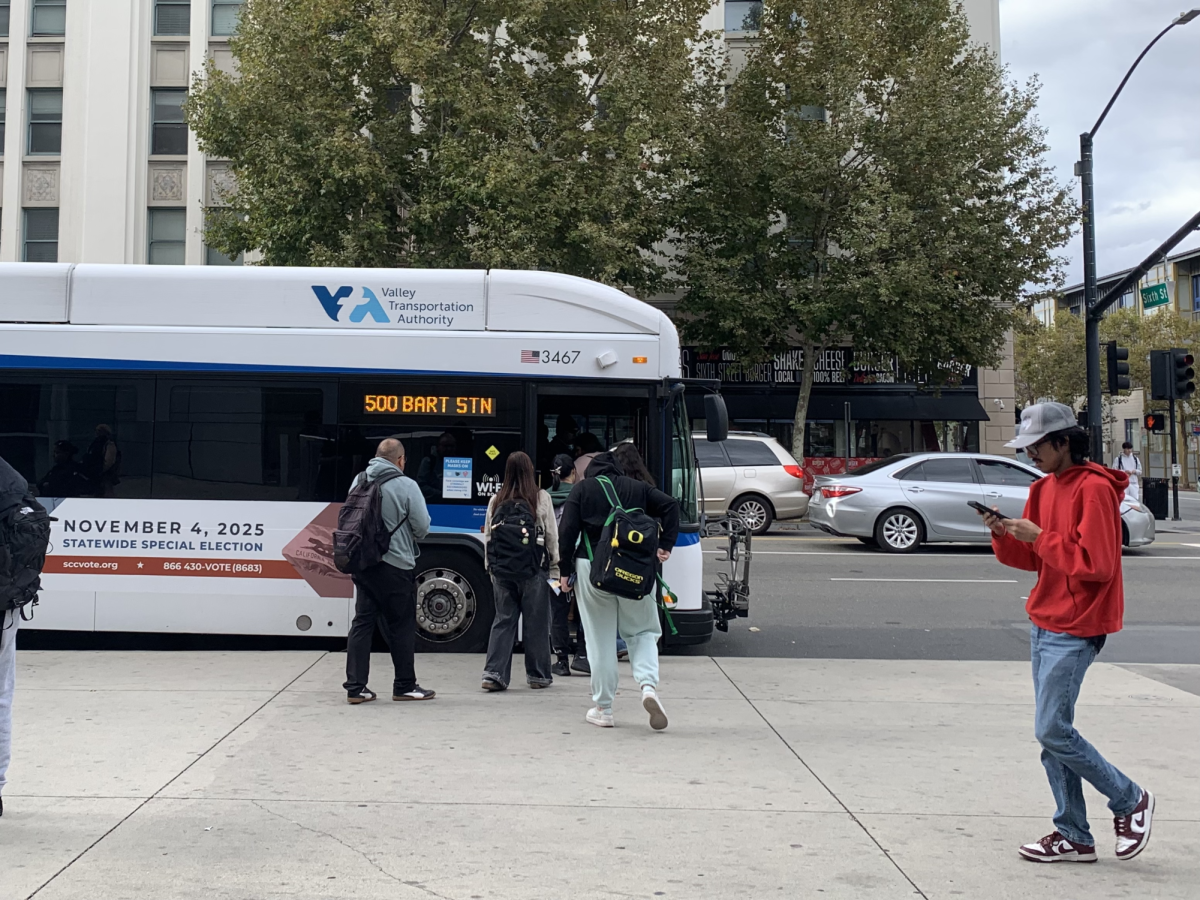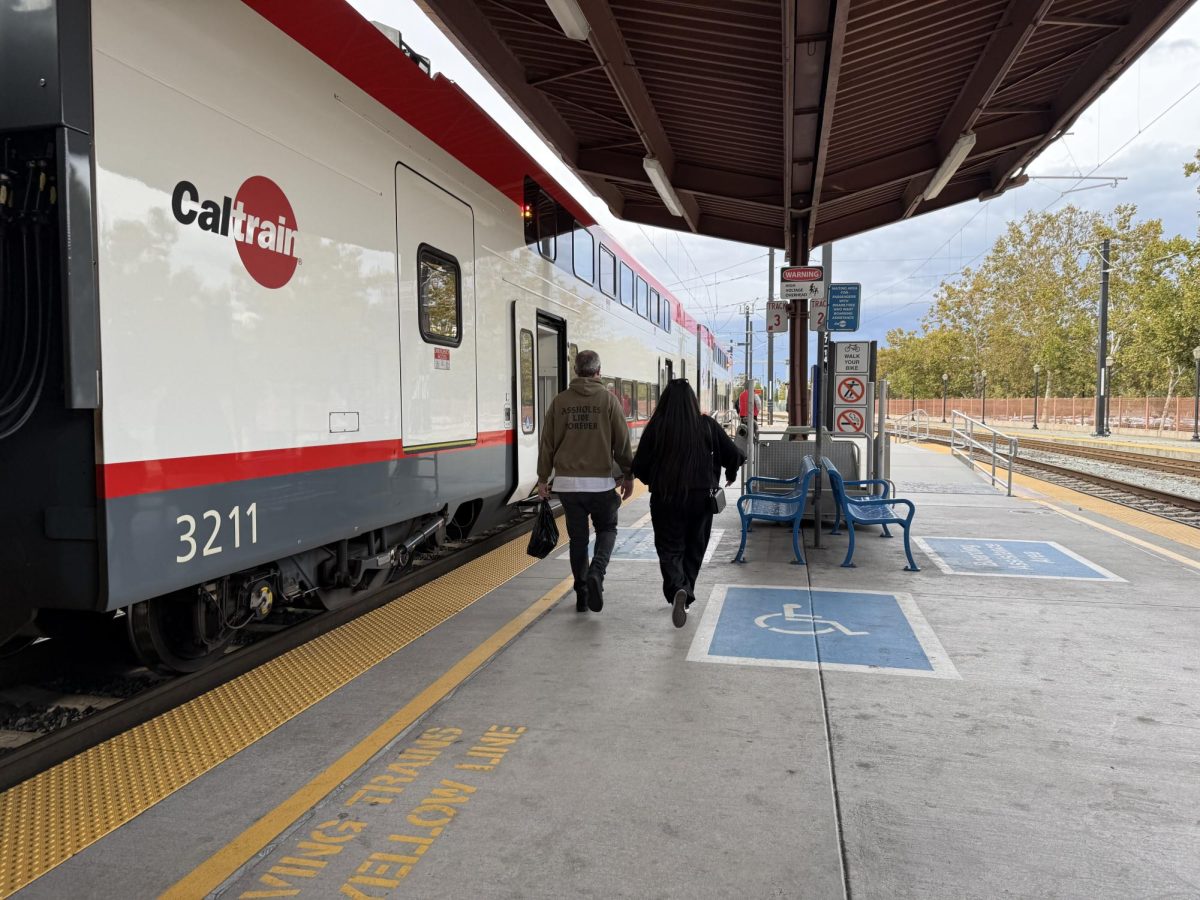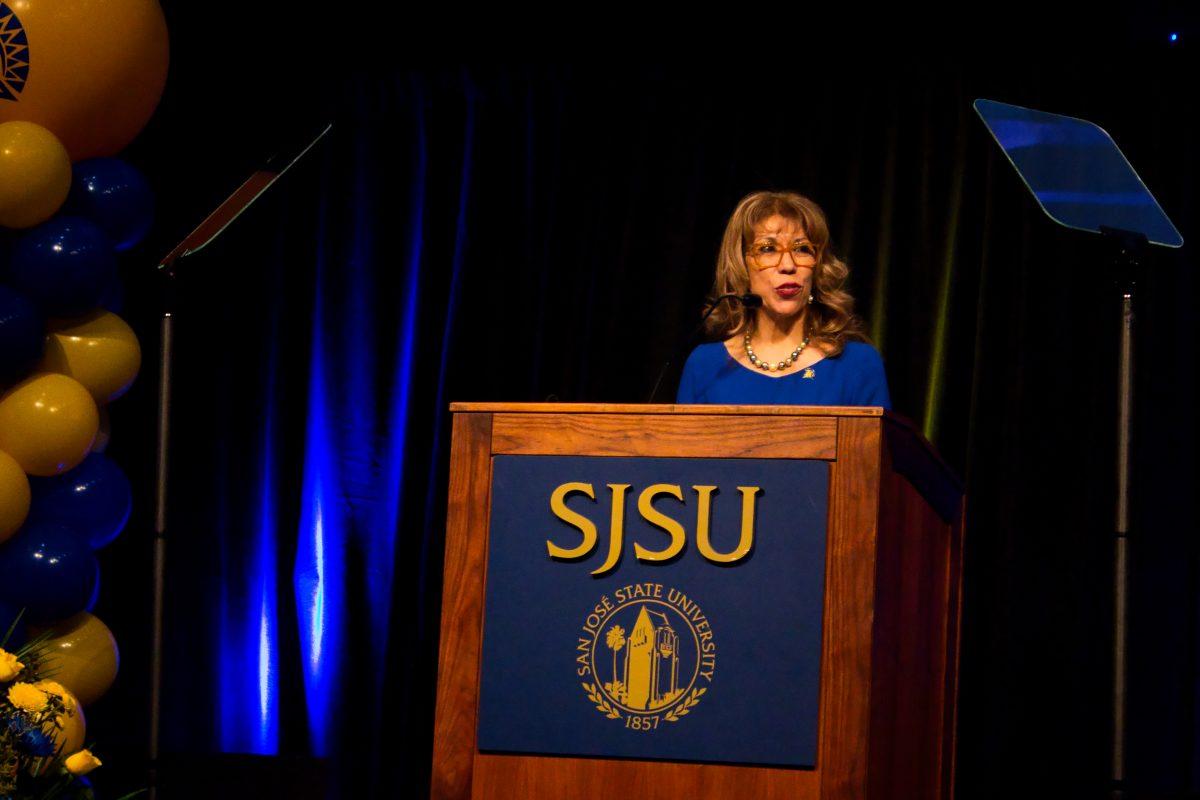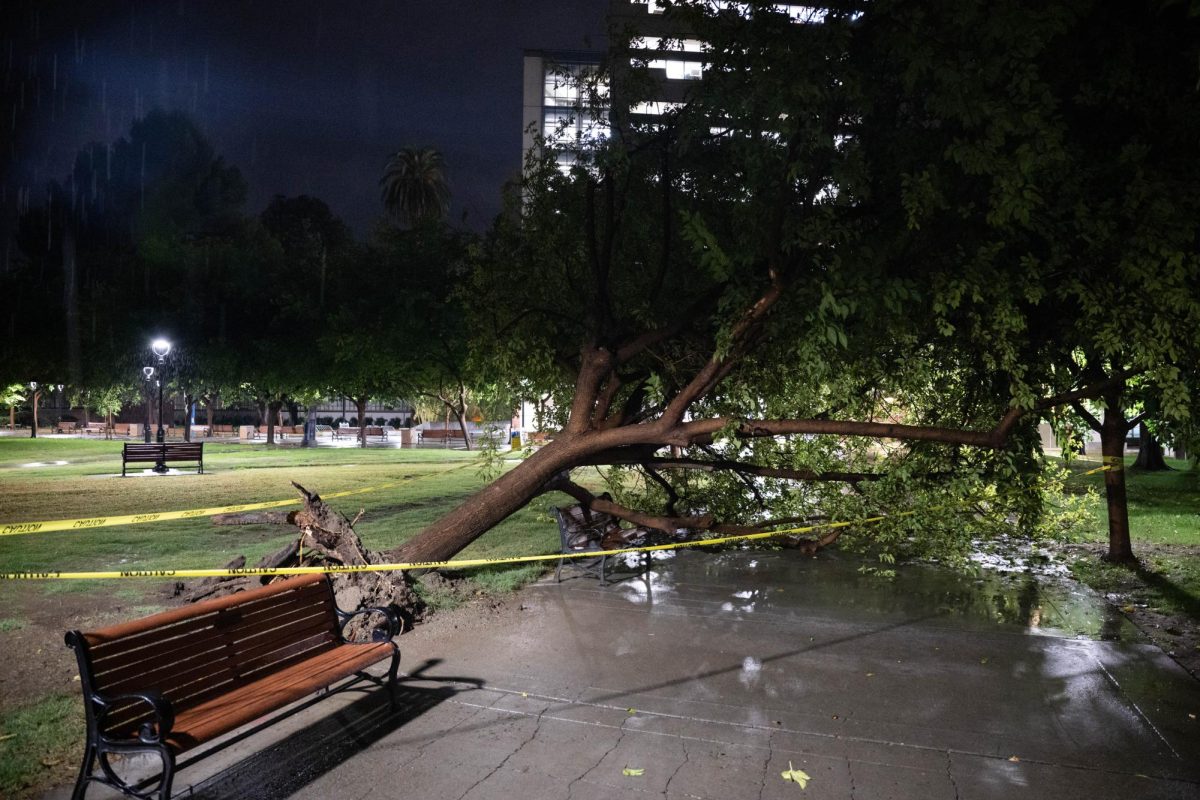On Aug. 19, The Spartan Daily interviewed San José State President Cynthia Teniente-Matson to discussed topics affecting the student body. Teniente-Matson is entering her second year serving the campus and student body. This is part one of a two-part Q & A series. Part 1 of this interview discusses how the new Time, Place and Manner Policy applies to protests on campus. Part 2 will cover affordable housing for students and financial aid and will be released in Wednesday’s edition.
Q: Could you share why it’s been important for the administration to make sure that students are aware of The Time, Place and Manner Policy?
A: The new system wide Time, Place and Manner policy overrides our policy, so our campus policy has now been updated to comply and be in alignment with the system wide policy. We want to make sure students are aware that the following (activities for)active advocacy and activism has always been in our (university’s) DNA. We support free speech, we support free expression. We support peaceful gatherings for demonstrations. That is the foundation of our country. We want to ensure that students understand the changes (in the policy), which are primarily around designation of spaces and a reservation process system. Now there are three categories (for) public spaces, public access space, limited access space, and private space. There are reservation systems in place now around the public spaces where advocacy and activism can occur. The intent is to ensure everyone has the opportunity to have an outstanding experience here to live, to learn, to work free of harassment. Our intent is to ensure every student receives the policy and that they understand that there is a new policy. We sent out an email to all of our students. We’ve created a course in Canvas for students to complete, to ensure that they understand the policy. Now we all as human beings make choices every day about what we’re going to do, but we want to make sure everyone understands the guidelines around advocacy and activism and to understand those consequences for breaking policy.
Q: There’s a very big concern about the idea of having to reserve space to do protest when, historically, it’s been typically (held) in public spaces — quite spontaneous — and the reservation process could imply that students have to have their protest approved by the university, including when they have times when they want to criticize the university. This could be a huge issue in terms of the right to advocacy and the right to protest. (What is your response to these concerns?)
A: The policy is content-neutral, and what that means is you don’t have to come in and indicate exactly what you’re going to be saying or doing. But if the space is occupied by someone else, you cannot ask that other group to vacate for the purposes of your event and activity, when it occurs. With spontaneity, (it) may also disrupt other groups who have already had spaces reserved, sometimes long in advance for their events and activities. The reservation system is attempting not to regulate speech or activity, but to ensure that groups have access to the space.
Q: What’s your response to students who will now be concerned if they have the right to counter protest?
A: Well, if it’s in a public space, there are new guidelines now for spontaneous protests. My response to that is, as long as the counter protests are done consistent with policy, it’s all permissible, and those would be (for) outdoor public spaces same as before. (You) can’t block fire lanes, (you) can’t block business activity, (you) can’t block sidewalks and public access spaces.
Q: Protests, historically, part of their purpose is to be peacefully disruptive. That can also sometimes mean blocking sidewalks, roadways, sometimes being very loud (like) having microphones. The policy does speak on those issues, but ask and require students to not be disruptive. Do you think there’s a concern that students may feel that their ability to protest will be too restricted?
A: Well, I think what we’re saying is there’s a Time, Place, and Manner policy that allows you to express yourself and freedom of expression, without creating an unsafe environment for others and without harassing others. When amplified sound is used in spaces that are not approved, it may be disruptive to other students and other faculty and staff and community members who are engaged in instruction, who may be engaged in other activities in those spaces which are reserved ahead of time and available for use. I think there is space for both, and that’s what the policy is trying to delineate. That there (are) opportunities for both without causing other students to feel fearful of reprisal or retribution from other students if they don’t share those same values. We’re also trying to ensure that you can broadcast that there’s a protest going on over here … Because this happens now … tThere are some groups who come to advocate for pro- life, and sometimes they bring displays of fetuses or the like that are triggering for other students. We don’t restrict those activities —, even though we don’t want to see it —, but we can alert students. There’s a protest about pro-life over here, or (a) demonstration, a display, or whatever the event might be categorized as, so that students (or) anybody in the community, for that matter, can make a choice to avoid that area.
Q: What are the consequences for students who either possibly accidentally (or) intentionally break policy?
A: The policy has always had consequences, just like anything else within the code of conduct. It is also our intent to try to talk to people. The first step is to (ask), “Are you aware of the policy? Are you willing to move your (protest) if it’s in a place that’s not permitted? Are you (or) can you move your protest or your activity here?” Those types of things. To talk to students, to respect their right to free speech and free expression within the policy . . . So the intent is to inform students and to work with students, but yes, there will be consequences., j Just as there are with any other activity that occurs in our society if we knowingly don’t follow university policy, state policy, traffic laws, traffic restrictions, etc.



